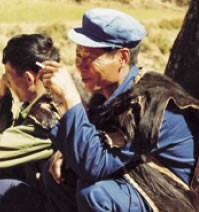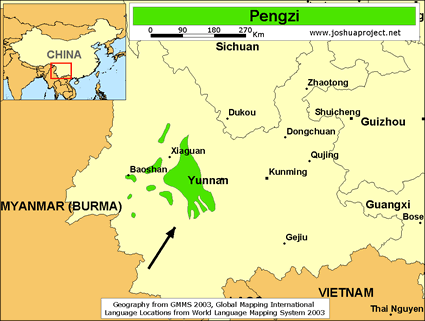Without a written record of their origins, little is known about where the Pengzi came from and why. Over the past century, despite their dwindling population, the Pengzi have managed to cling to their ethnic identity.
Although small in number, the Pengzi view themselves as a distinct people group. They have also been mentioned in Chinese official sources from the area. The central government, however, has included the Pengzi as part of the official Yi nationality, which is a collection of about 120 different tribes and ethnic groups.
The Pengzi live in a remote mountainous area. In China, rural areas have a particular charm about them. Needless to say, that same remoteness prevents them from having their spiritual needs met by Christ's ambassadors. The majority of the Pengzi live apart from all Christian influence. Few are aware of the gospel.
In the past the Pengzi practiced animal sacrifice to appease the spirits that governed their lives. In recent decades, however, and especially since the Cultural Revolution (1966-1976) when people were pressured to stop their animistic rituals, the Pengzi have become a more secularized people. The ancestors of the Pengzi are still worshiped at ceremonies held two or three times each year.
Because of their small numbers, few outsiders, including both Chinese believers and foreign missionary organizations, have ever heard of the Pengzi.
The Pengzi need the opportunity to learn about Jesus. Until that happens, there will always be a spiritual void in their hearts.
Pray for God to touch hearts who will say, “Here am I, send me” to the Pengzi.
Pray that God will give the Pengzi dreams that only a Christian can explain to them.
Pray that God opens their hearts and minds to receive the gospel of Jesus.
Scripture Prayers for the Pengzi in China.
Operation China, Asia Harvest, Copyrighted © Used with permission.
| Profile Source: Joshua Project |











